‘We don’t need outsiders who come and tell us what to do. We need friends who come and join us in our struggle and vision. They help us keep the hope alive.’
Daoud Nasser, Tent of Nations
When I first visited the Tent of Nations I wondered where the driver was taking us as we wound our way up a very narrow poor-quality road to a hilltop. We stopped outside a high gate from which there were spectacular views. We entered up a track past an engraved stone announcing, ‘we refuse to be enemies.’ We walked under a variety of different trees and were met by the smell of sage drying to arrive at a veranda where we were greeted and served refreshments.

The Palestinian Christian Nassar family has been farming this same land southwest of Bethlehem since 1916. Due to the Israeli occupation with its subsequent land confiscation, water and electricity restrictions and limited road access, farming the land is becoming more difficult. Yet the family have continued and made the land into an educational, environmental project known as the Tent of Nations. It seeks, by working the land in sustainable ways and bringing many people from across the world together, to be a symbol of hope.
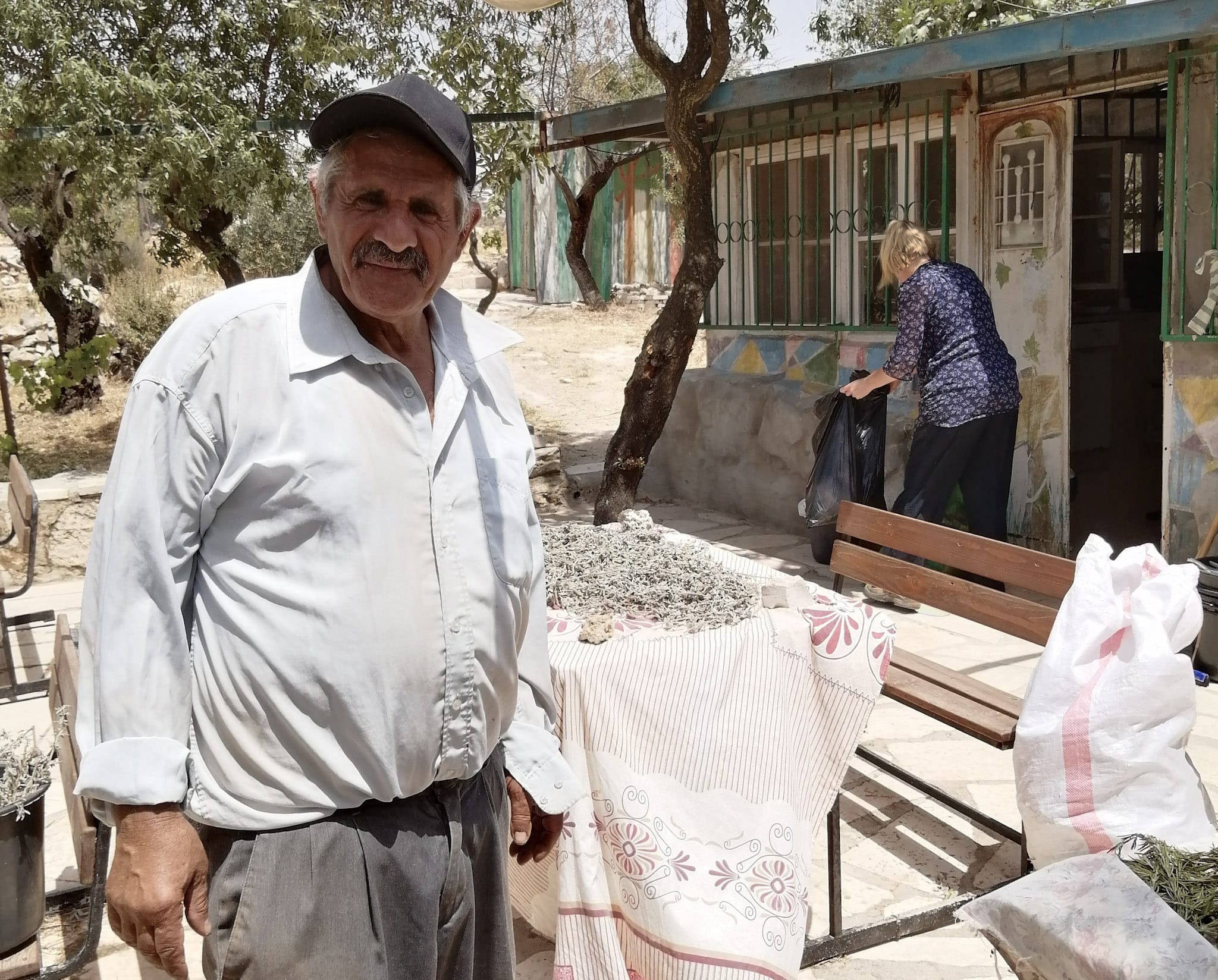
Daor Nasser of the Tent of Nations dries herbs in the sun
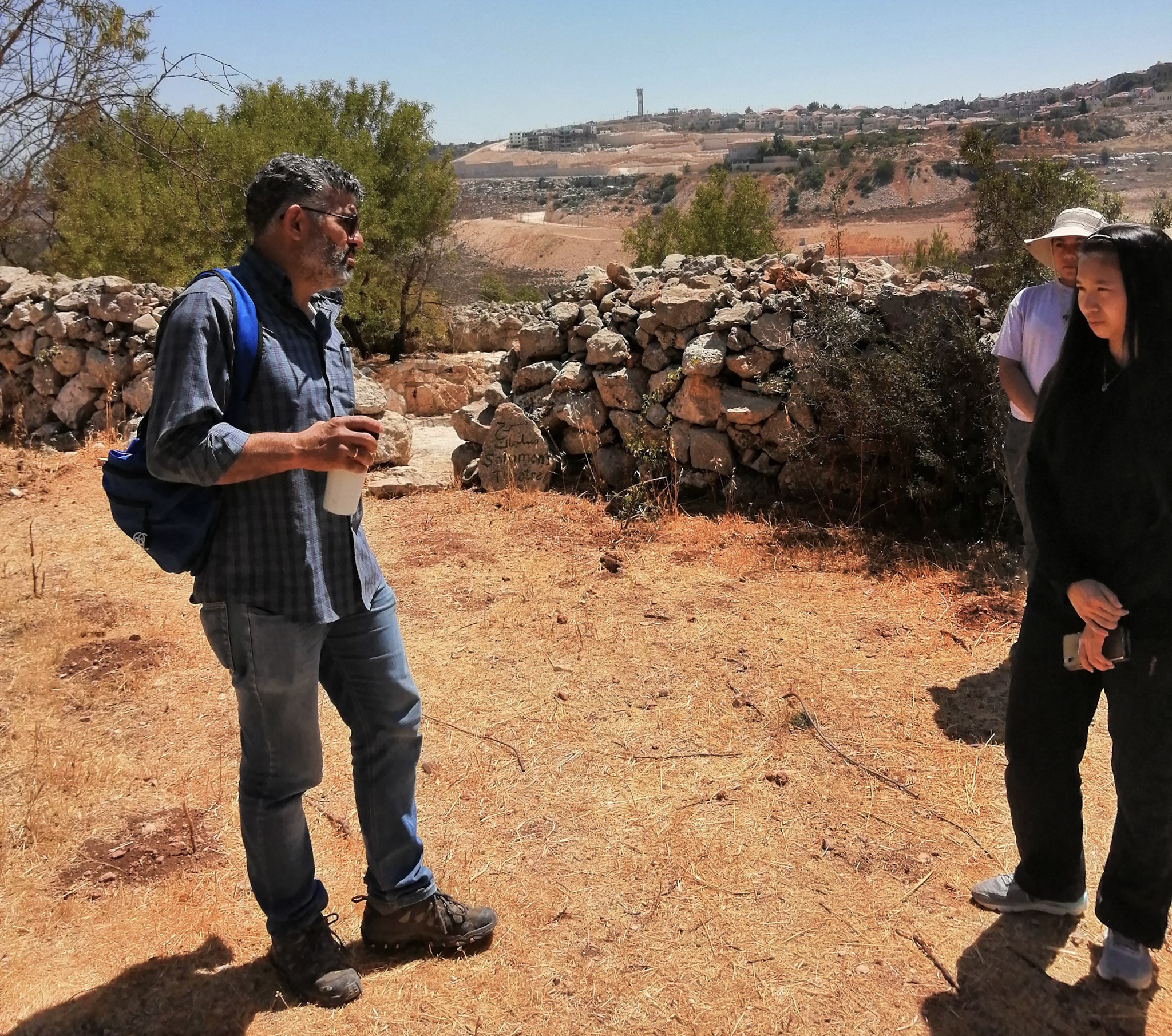
Daoud Nasser of the Tent of Nations shares information with visitors
‘State Land’
Many legal strategies are used by the Israeli authorities to take control of land in the occupied West Bank. One of these is classifying Palestinian owned land as Israeli state land. According to Israeli human rights organisation, B’Tselem;
‘large swaths of land have been classified as state land and designated for use by settlements, despite the fact that they belong to Palestinian individuals or communities.’
Palestinians living in Area C, an area which comprises more than 60% of the West Bank, and is under full Israeli military control, are especially vulnerable to this appropriation. In 1991, Israel declared the Nasser’s farm in Area C ‘state land’, despite the fact that it has been privately owned by the family for generations.
In these cases, proving ownership and covering the costs of this rests with the Palestinian seeking to do so. The Nassar family has papers proving ownership of the land from the Ottoman period and from the British Mandate period. However, since 1991 there has been an ongoing court case. At each stage more information, or a further process is requested, or the hearing is simply postponed by the Israeli authorities. In the meantime, the Israeli settlement, Gush Etzion is expanding on the hillsides surrounding the hilltop of the Tent of Nations and further settlements have been established all around the nearby Palestinian village of Nahalin. The only hilltop here still being farmed by Palestinians is the of the Tent of Nations, but with many challenges.
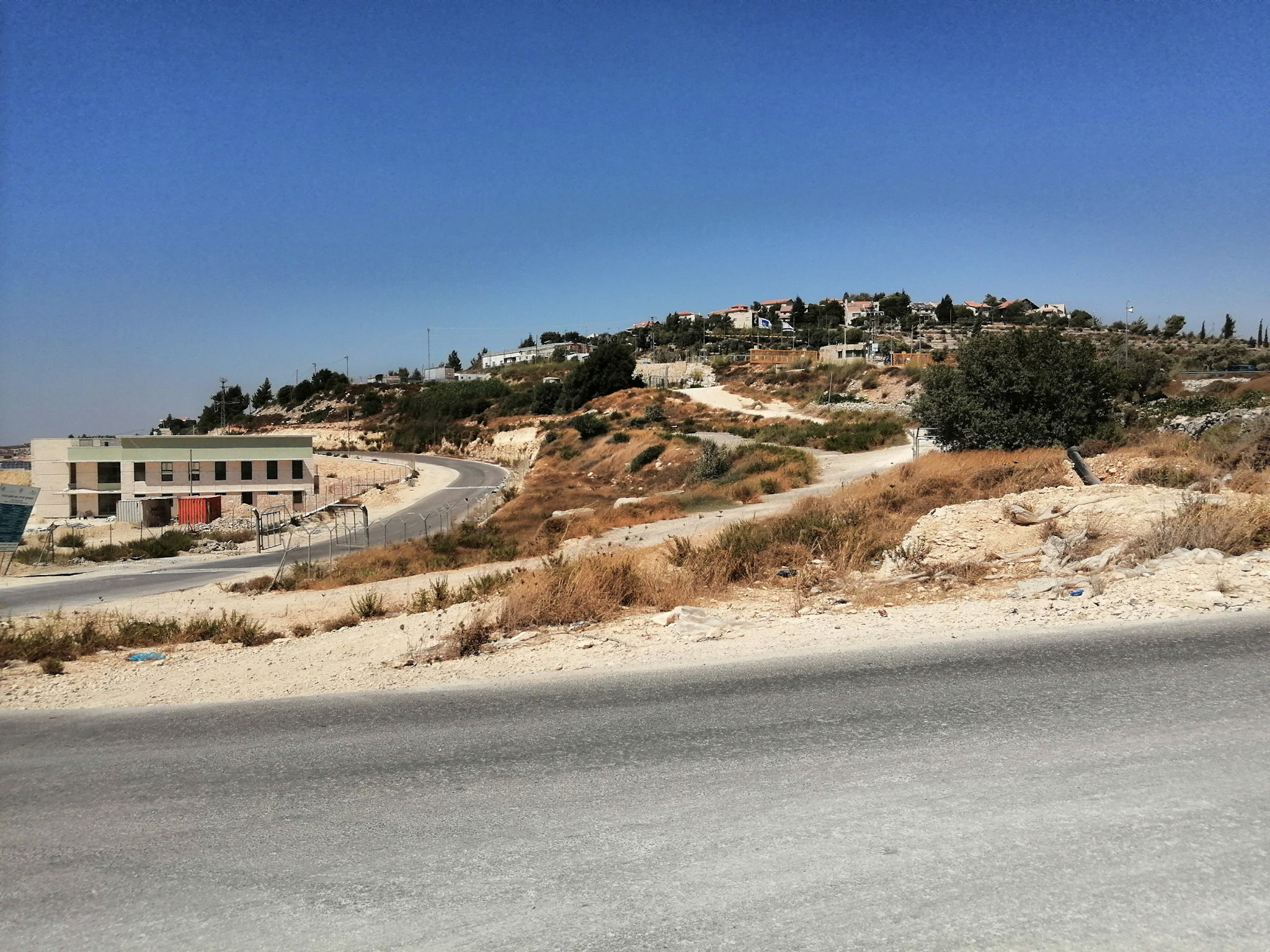
View of the nearby settlement and settler road
As the land is not considered their own, the Nasser’s cannot get permits to build or develop on it from the Israeli authorities. Nor are they permitted to connect to the water or electricity supplying the nearby settlements. They have established simple living areas, solar energy, composting toilets and ways to collect rainwater. When there is insufficient rainfall to water their trees and plants in the summer heat, they must purchase tanks and bring them to the farm.
Olive and fruit trees that have been destroyed in two major attacks by Israeli settlers have been replanted. International visitors are welcomed for harvests, to stay as volunteers and as visitors to learn more. Their presence also lessens the risk of physical attack which the family have also suffered. The aim of all of this is to make the Tent of Nations sustainable even if it becomes cut off by settlement expansion, or by the proposed extension of the Israeli separation barrier, which threatens to separate the farm from the rest of Bethlehem.
As well as running the Tent of Nations and finding ways to live on and work their land, the Nasser’s continue their battle to prove ownership of it in the Israeli courts. The ongoing court case and associated bureaucracy makes daily planning difficult as it is absorbing so much finance, energy and time.
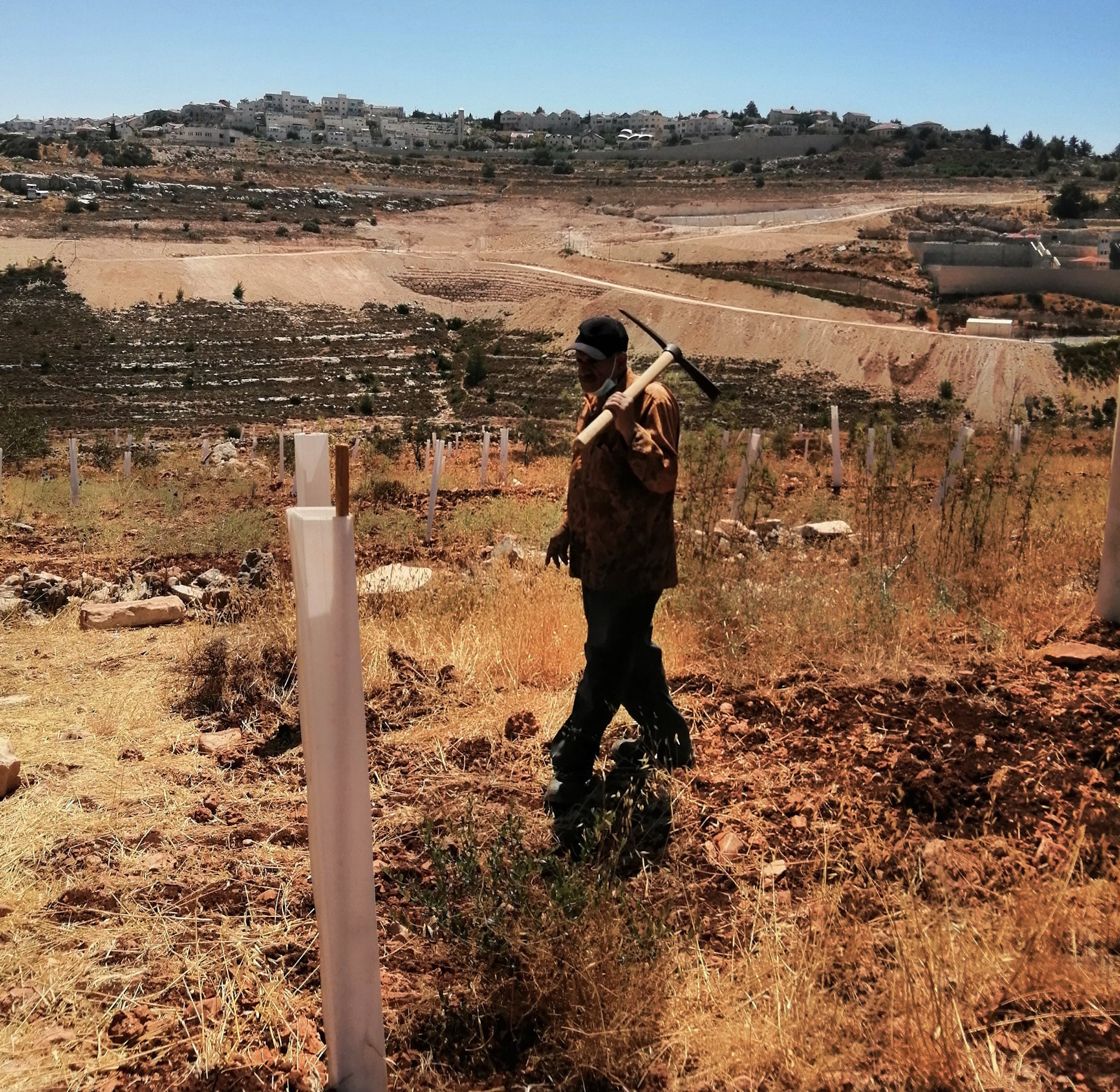
Daor Nasser working on the farm
We’re told that the ‘three P’s’ of people, place and perseverance are motivation for the Tent of Nations. Daoud Nasser says;
‘Occupations come and go and yet we are still here.’
The Tent of Nations is based on the Nasser’s Christian faith which includes active nonviolent resistance. They want to remain as a sign of hope. Daour Nasser says, ‘We hope for the best but prepare for the worst.’ They are seeking to give young people an experience of the land at camps where they can explore the environment, water sustainability, nurture and care of trees and using alternative technologies. International visitors’ presence for these and to help with working the land and harvests help. ‘We don’t need outsiders who come and tell us what to do. We need friends who come and join us in our struggle and vision. They help us keep the hope alive.’ says Daoud.
The Tent of Nations still await their hearing in the Israeli Supreme Court and recently posted this update on their Facebook page:
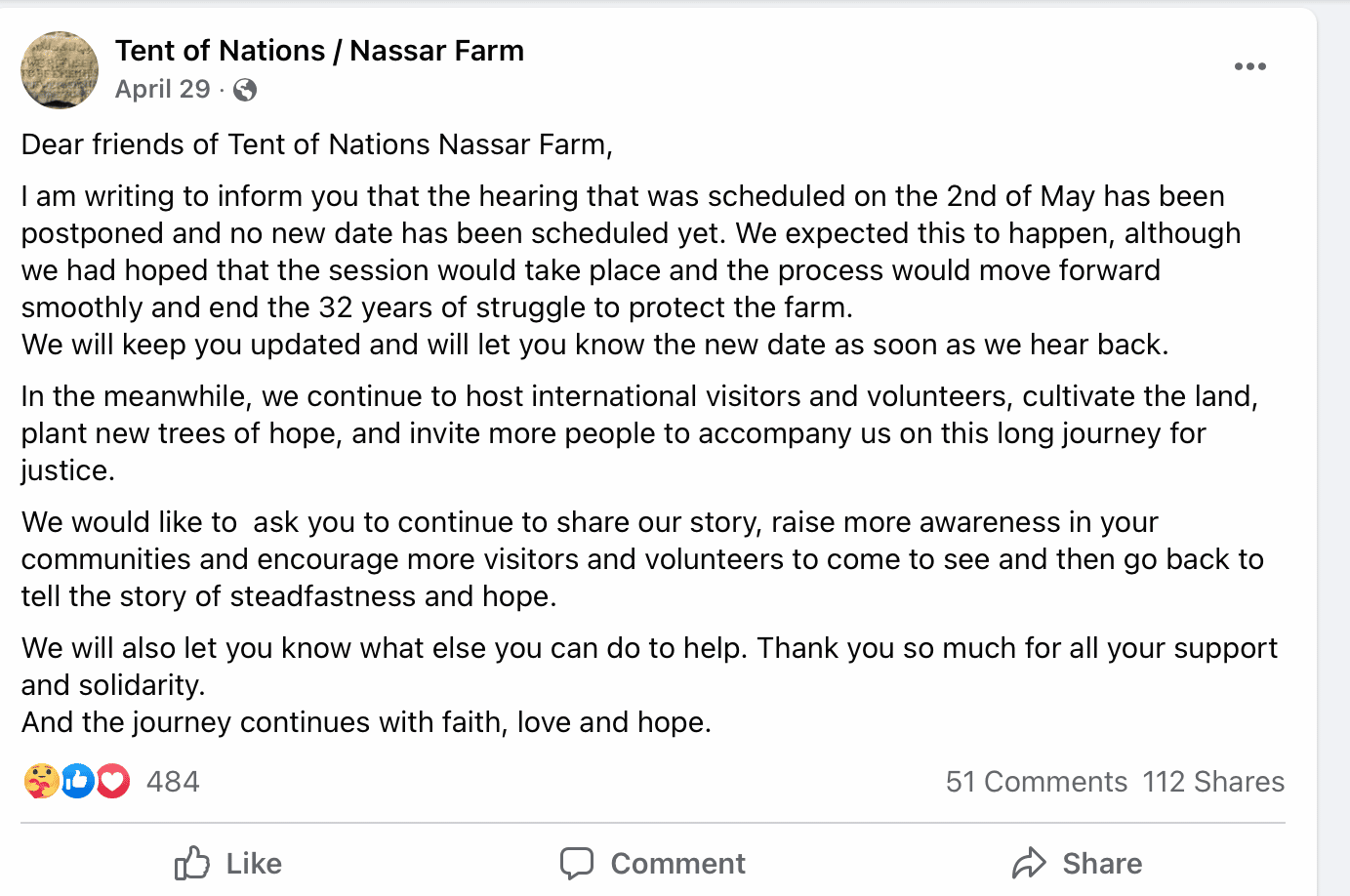
Take action!
-
Follow, support and share the work of Tent of Nations on Facebook, Instagram and Twitter.
-
Consider volunteering at the Tent of Nations. There are a variety of options throughout the year, including children’s camps and fruit harvests.
-
Use our quick template letter and contact links to send this eyewitness story to your elected representatives. Ask them to call upon the Israeli government to fulfil their obligation under international law and immediately stop the building of settlements on occupied Palestinian land.

